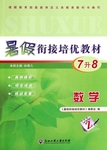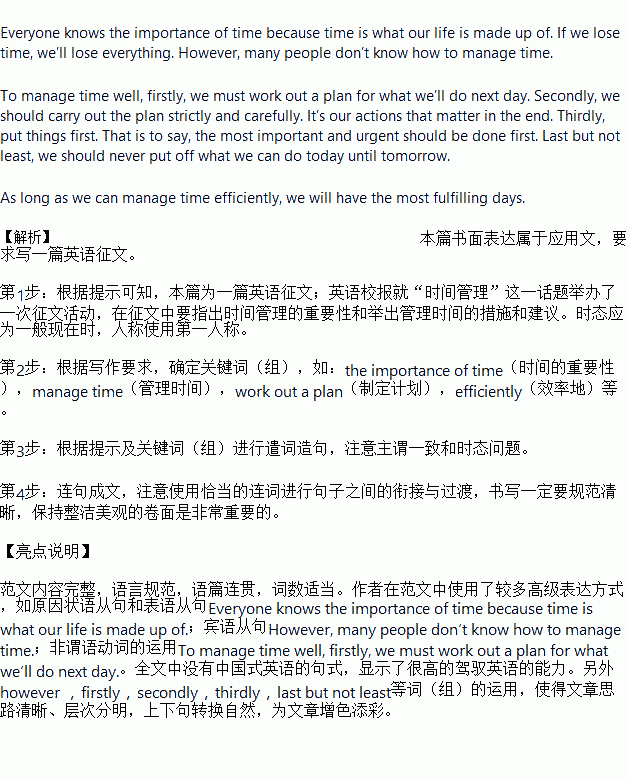题目内容
假如你是李华,你校英语校报就“时间管理”这一话题举办了一次征文活动。请你根据以下要点,写一篇英语短文投稿。
1. 时间管理的重要性;
2. 举出管理时间的措施和建议。
要求:
1. 词数100左右;
2. 可以适当增加细节,以使行文连贯。
练习册系列答案
 暑假衔接培优教材浙江工商大学出版社系列答案
暑假衔接培优教材浙江工商大学出版社系列答案 欣语文化快乐暑假沈阳出版社系列答案
欣语文化快乐暑假沈阳出版社系列答案
相关题目
2.It took me a long time before I was able to fully appreciate what they__ for me.( )
| A. | had done | B. | did | C. | would do | D. | were doing |
3.John opened the door.There _____ he had never seen before.( )
| A. | a girl did stand | B. | a girl stood | ||
| C. | did a girl stand | D. | stood a girl |
6."Perhaps we need to send for Dr.Smith to see what we can do about it,"Father suggested ________ to his neighbor who had come to discuss the problem.( )
| A. | tentatively | B. | thoughtlessly | C. | definitely | D. | rudely |

